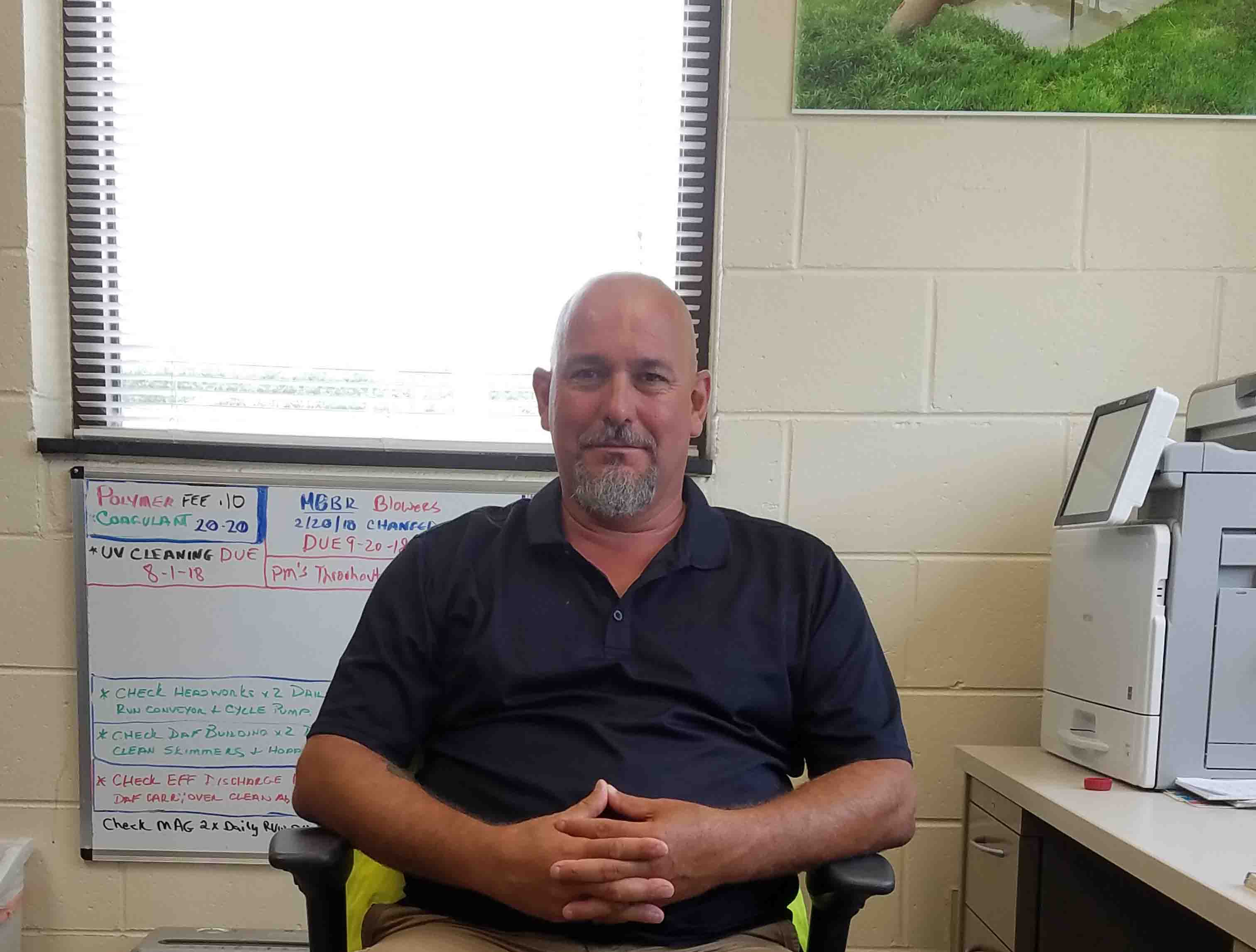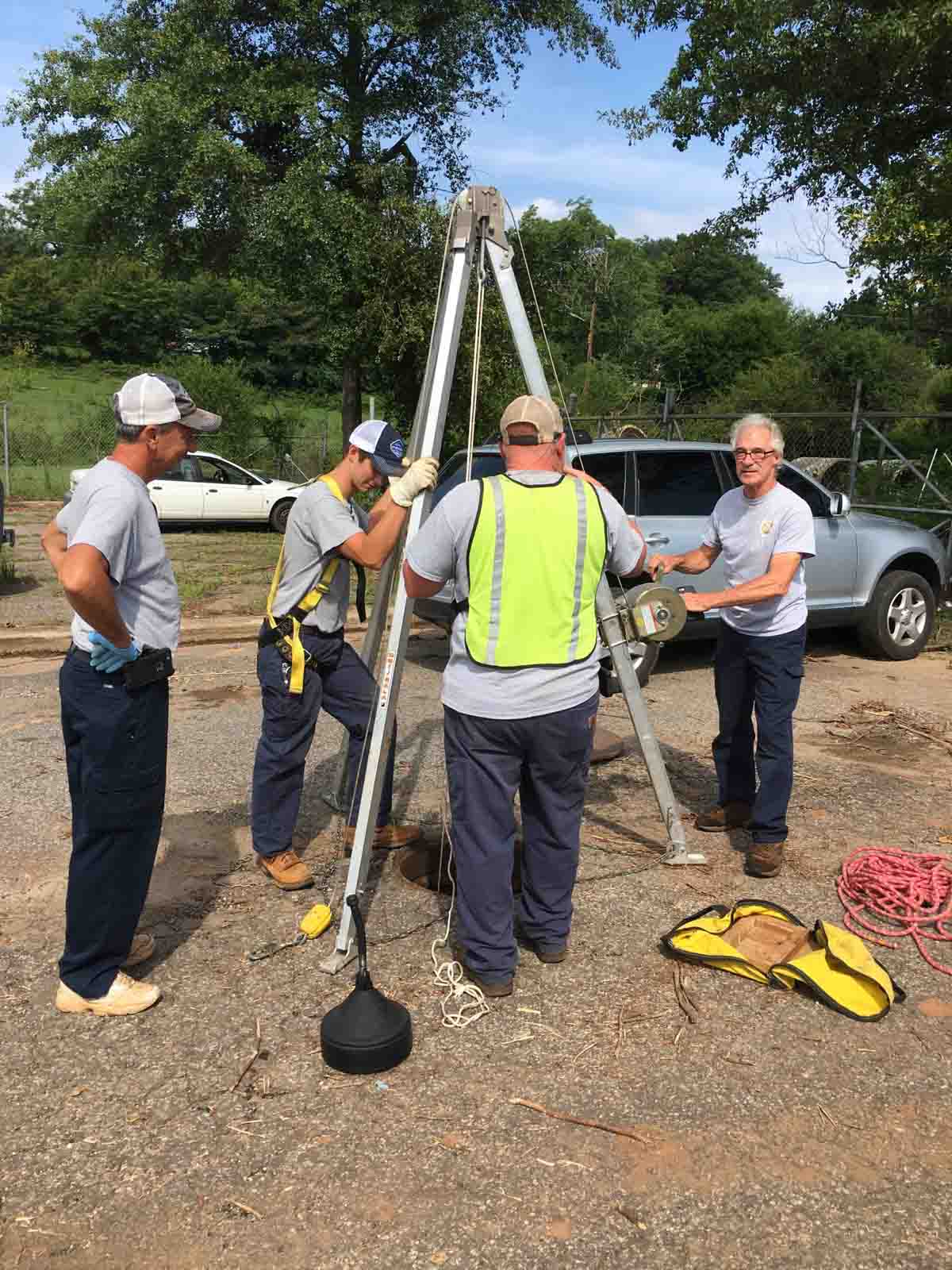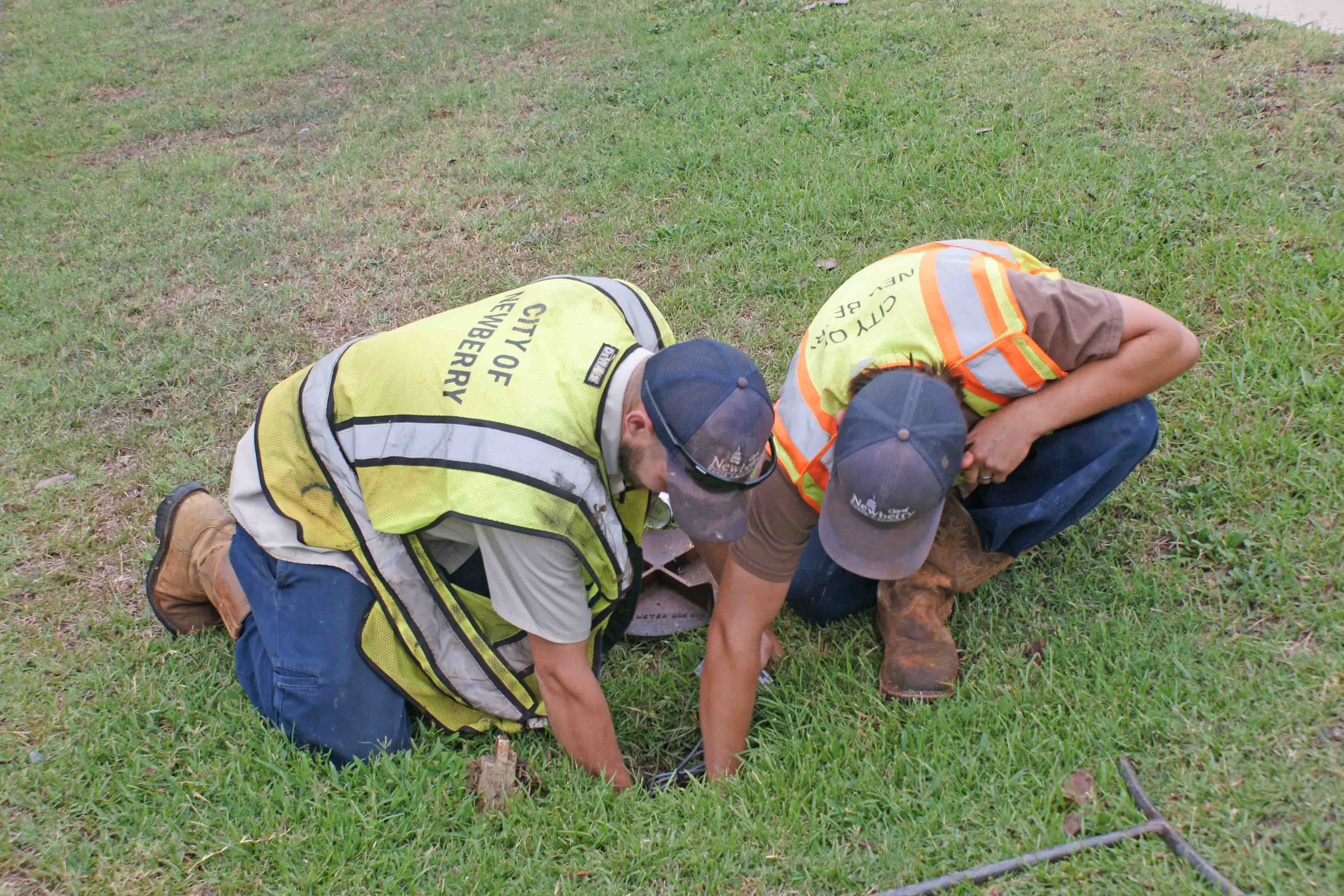“We get called mad scientists.”
And for good reason — Joe Ortiz and others in the City of Woodruff sewer department are always in the laboratory. They’re testing water samples to ensure the effluent that the city returns to the environment doesn’t harm the waterways.

Joe Ortiz, sewer superintendent for the City of Woodruff, said the fundamental
responsibilities of his job have not changed over the decades. Photo: City of Woodruff.
Ortiz, the city’s sewer superintendent, starts his day by calibrating the lab equipment at the plant and running a variety of tests. One involves making sure the plant’s effluent contains enough dissolved oxygen before it’s sent back into a stream in the environment.
“If what I’m discharging into a stream eats up the oxygen, it will harm the fish,” he said.
The city maintains more than 34 miles of underground sewer collection pipe and treats an average of 250,000 gallons of wastewater per day before discharging it into area streams and waterbodies.
“If we’re having a big rain event or a hurricane is coming inland, I have to set the plant for high flow. I still have to maintain compliance — whether we get 1 inch, no rain or 10 inches of rain,” Ortiz said.
Falling out of compliance with the discharge permit that the SC Department of Health and Environmental Control issues entities like the City of Woodruff can bring penalties and fines.
“I’ve got to make sure everything runs. If my equipment fails at the wrong time, I can go out of compliance,” he said. “And I’ve not had a compliance issue in 20 years. I don’t want to have one now.”
Ortiz, who entered the field in 1984, said new technology and new regulations have shaped the changes in his profession over the decades. The fundamentals, however, haven’t changed.
In the City of Newberry, Brad Rikard, the water and sewer maintenance superintendent, said controlling the risks that can come with the job stays at the top of his mind.
“Worker safety is a big concern for me. Trench cave-ins are really concerning to me,” he said, referring to the hazard of collapsing dirt walls that can bury an employee if proper safeguards are not in place. “I also worry about sanitary sewer overflows.”
That said, Rikard relishes his chosen path: “I really enjoy the challenges that my job throws at me. It also is very enjoyable when you have a great supporting cast around you.”
Like Rikard, Ortiz happily takes on anything that comes his way — from the occasional line blockage and preventive maintenance to day-to-day operations and “SC 811 locates,” which requires employees to locate sewer lines for different agencies so they can dig and make repairs, such as fixing water leaks.
“My job is different every day, and it’s refreshing — You never get bored,” said Ortiz. “Mostly, we protect the environment for future outdoorsmen and women.”
He’d recommend younger job seekers consider the profession.
“This job has allowed me to do anything and everything I want to do in my life. I put a daughter through college,” Ortiz said.
For Jeff Bailey, wastewater treatment plant director for the City of Inman, the best part of the job is protecting the environment and working with the people in his departments. His staff also operates the City of Chesnee’s plant.
“I feel I’m doing my part putting clean water back in. The more I can preserve for my kids and grandkids to enjoy — that’s my contribution,” said Bailey.
Maintaining the pipeline
Like many in municipal government, Bailey wonders if the next generation of workers will turn to sewer operations in sufficient numbers.
Sewer workers for the City of Inman and others in the field must complete specialized training in order to perform confined-spaces work. Photo: City of Inman.
“We’re in need of young people for this industry — water and wastewater,” Bailey said. “They look at it as a dirty job, but there’s electronics and gadgets involved. We’ve got engineering and cameras, drawings, blueprints, planning and development. I don’t think the kids realize how interesting it can be. Well, you don’t want to be a ditch digger. OK, but you’ll move up, and you’ll get experience and training to do these jobs that we need.”
In the City of Hartsville, succession planning in sewer operations has loomed larger than turnover, according to Rebecca Mejia-Ward, the city’s human resources manager. She said the city most recently lost three employees with years of experience due to retirement and employee medical issues.
The right skills
Sewer operators are in demand — so much so, in fact, that job candidates can often gather certifications after they accept employment offers.“We are having to bring in ‘clean slates’ and get them certified and trained,” Mejia-Ward said, adding that Hartsville does well at retaining these employees, but recruiting them is challenging.
Sewer operators have a variety of certifications and licenses, such as ones pertaining to working with asbestos cement, trenching and shoring, backflow activities, biosolids, wastewater collection, laboratory work, water distribution and biological materials.
The skills from the certifications are highly marketable. As a result, cities and towns must often compete with local industry for employees. Private sector companies commonly operate pretreatment plants where they strip their wastewater of oils, greases, metals and other harmful contents.
The City of Newberry’s water and sewer operations typically lose about one employee per year, with private sector employers often luring municipal water and sewer operators. Hires that are still working on their certifications must earn them within six months of starting work.

Casey Proctor and Gary Grice change out a water meter for a City of Newberry utilities customer.
Photo: City of Newberry.
And yet, making sure sewer operators possess certifications doesn’t pose the greatest challenge. So what does?
“It’s hiring folks with experience who truly understand the technical as well as the customer service aspect of the service to citizens,” said Mejia-Ward.
The “Day in the Life” series gives an insider’s look at the professions that make South Carolina cities and towns great places to live, work and play. Municipal employees from around the state explain their role, discuss challenges they face and share stories from the unique world of municipal government.
